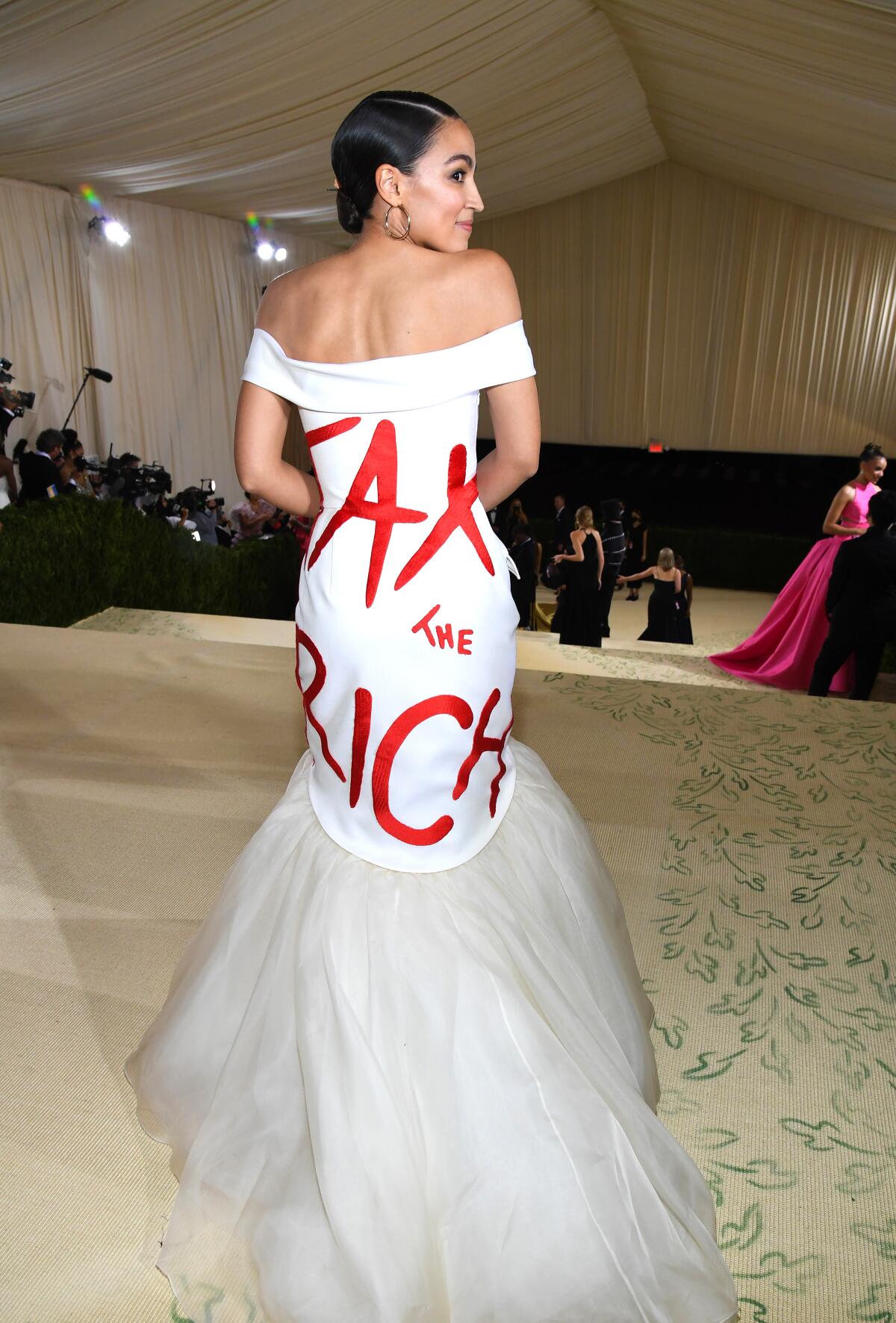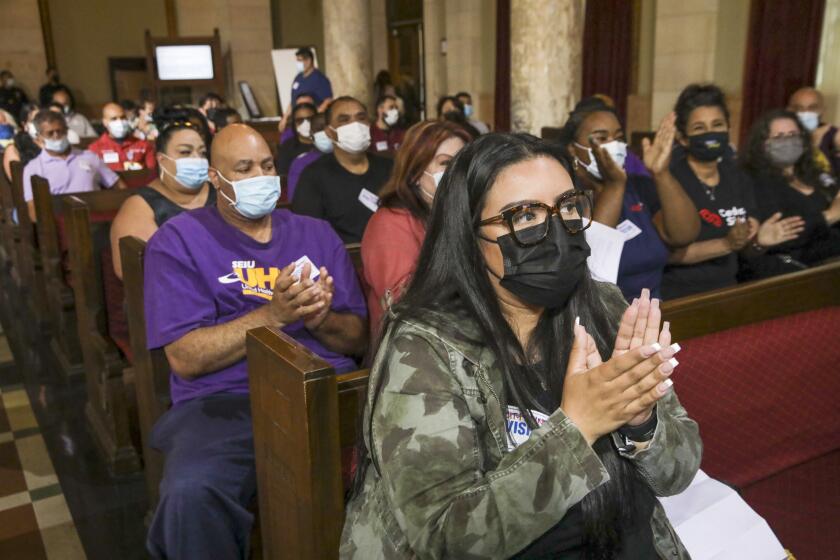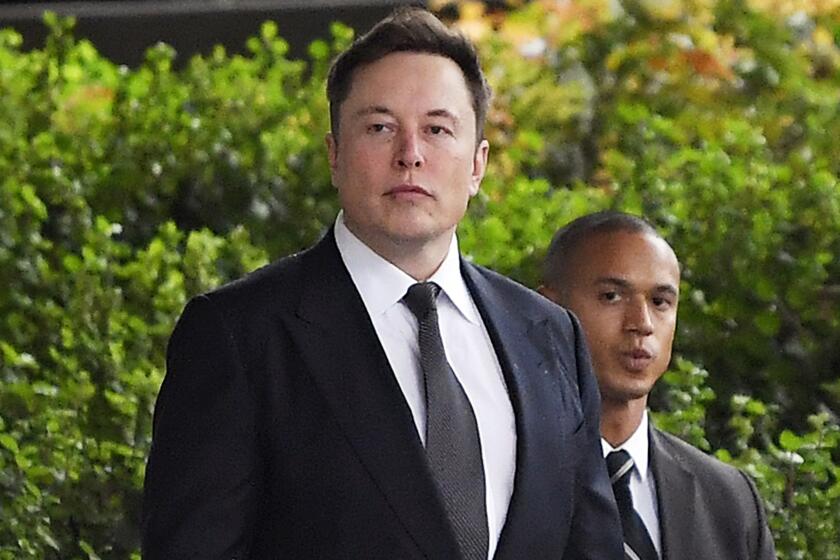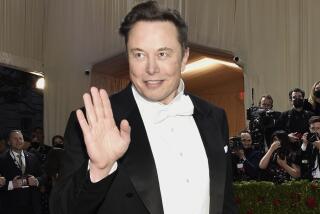No more billionaires? We can be more ambitious than that. No one needs more than $20 million

- Share via
“Every billionaire is a policy failure.” Alexandria Ocasio-Cortez exemplified this motto when she entered politics and famously wore the slogan “Tax the rich” on her gown to the Met Gala. Yvon Chouinard, the billionaire and owner of the outdoor apparel company Patagonia, who became famous for putting profits from his company toward protecting the Earth, reportedly had a bumper sticker with that slogan on his car. And Oxfam recently said as much when it released its annual report on economic inequality.
As a political philosopher, I support this too. I call this “limitarianism,” in which societies define a cap on how much personal wealth an individual can accumulate. But we should be morally more ambitious than only wanting to get rid of fortunes that are more than $1 billion. If we look carefully at the reasons for limiting personal wealth, we might well agree on a much lower maximum limit.
Basketball coach Dawn Staley is working with Goldman Sachs’ One Million Black Women initiative to raise awareness that the status quo is a problem for all.
Why should society limit extreme personal wealth?
Excess wealth keeps the poor in poverty while inequality grows. Research shows that the lion’s share of the gains that economies wield go to those who already have the most, while only a tiny fraction goes to those who have the least. This is the case globally, as well as in the U.S. Tax deductions disproportionately benefit the rich, whose tax contributions could have supported the poor.
Another important reason is that excess wealth undermines democracy. As I’ve found in my research, extreme wealth allows the super-rich to spend fortunes on lobbying, or to donate huge sums to support political candidates and parties, which gives them a bigger voice in political decisions.
Government shouldn’t be setting pay willy-nilly just for some workers in some facilities without at least considering or debating the repercussions.
Moreover, the rich and super-rich are disproportionately responsible for climate change. Their lifestyles and their investments are responsible for more greenhouse gas emissions than the average person’s. If they paid taxes for the environmental harms their activities cause, their holdings would be much smaller.
A more fundamental reason to limit wealth? Although many believe that what they reap in the market is what they deserve, no one can morally say that they deserve their fortune. Wealth is, to a large extent, the result of factors that we can in no way take credit for. We should acknowledge the huge influence of good or bad luck in our lives: including the “natural lottery” ticket that we were given when we were born; the family we were born into; the parents and teachers who influenced us deeply. Inheriting a vast fortune, the source of wealth for so many rich people, is also pure luck, and thus undeserved. Much economic success has been facilitated by the work and investments from previous generations, and none of us can take credit for those achievements.
Americans panic over politics, then Google how to move to New Zealand. Billionaires like Peter Thiel are setting down roots. But we have problems.
If we want to limit wealth so that we can address poverty, invest in public infrastructure, protect democracy, end climate destruction and eliminate undeserved riches, then where should we draw the line?
There are two limits to wealth that we should consider: one political, the other ethical. They should be set at different levels. The political level should be democratically decided and embedded in law and institutions; the ethical level would be a voluntary, personal decision, in which we can take our personal context into account.
We may think any of us can become the next Bezos or Musk. But in fact, social mobility is not really a thing in America anymore. Income inequality is.
To set the political limit, each society has to ask: What is the level of wealth at which a rich person can significantly undermine democracy? What is the level of wealth at which the rich person’s corresponding lifestyles harm the environment? What limit could be justified based on what we deserve? What limit would be high enough so that it would keep incentivizing people to innovate and contribute to the economy? What is the upper limit above which personal wealth starts to turn into wasteful spending? We need to estimate the answers to these questions, and then strike a balance. This gives us the political limit.
Based on those considerations, for a country similar to the Netherlands, where I live, my rough estimate for the political limit would be around 10 million euros. In the U.S., there are reasons it probably should be higher. For example, Americans lack a public pension system or universal healthcare, which make many people feel pressured to save more. Perhaps the political upper limit should be $20 million. But surely not $1 billion.
To determine the second limit, the ethical limit, we all need to answer the question: How much money do I need to lead a very good life, and meet any special obligations I might have, such as to family members who cannot provide for themselves? This limit will depend on our particular circumstances as well as the public and collective provisions we can count on. The answer will vary among individuals, but that doesn’t mean that anything goes.
We must ask ourselves: “When is enough enough?” And the answer to that question can’t be “1 billion.” Surely, we should be much more ambitious than that.
Ingrid Robeyns is a professor of political philosophy at Utrecht University and the author of “Limitarianism: The Case Against Extreme Wealth.”
More to Read
A cure for the common opinion
Get thought-provoking perspectives with our weekly newsletter.
You may occasionally receive promotional content from the Los Angeles Times.










